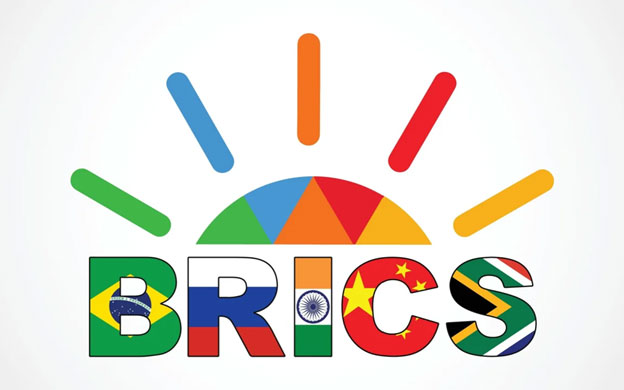
MOSCOW, Oct 3 (IPS) – In an interview with Sky News Arabia on September 20, Russian Foreign Minister Sergey Lavrov expressed skepticism but was straight to the point about the strategic expansion of BRICS, a partnership comprising Brazil, Russia , India, China and South Africa. Under Russia’s BRICS presidency, which started in January 2024.
Ethiopia, Egypt, Iran, Saudi Arabia and the United Arab Emirates became the second wave of the newest members to join the BRICS. South Africa rose in 2011 at the initiative of China.
While tracing the history, activities and achievements, Lavrov acknowledged in his interview that the BRICS association is consolidating its positions and cooperating with various countries.
At the same time, this association is faced with certain challenges. It is necessary to promote cooperation based on a balance of interests, and most importantly, the BRICS function on the basis of consensus.
The consensus principle is primarily aimed at finding agreements that reflect the mutual agreement of all participants. This is not easy. The more partners, the more difficult it is to look for agreement. It takes more time to finalize a consensus-based agreement than a vote-based solution.
According to Lavrov, this provides a solid basis for developing a strategic partnership within the association. Currently, the BRICS includes 10 countries; their number has doubled compared to last year.
More than 30 countries have already submitted applications to interact or join the association. At the summit to be held in Kazan in October, one of the main agenda items will be the consideration of applications from states wishing to interact and cooperate with BRICS+.
The expansion of BRICS+ had sparked debates and discussions in recent years, long before Ethiopia, Egypt, Iran, Saudi Arabia and the United Arab Emirates were finally accepted on the condition of ‘consensus’ by BRICS members at the South African summit in August 2023.
Lavrov has already indicated and repeatedly explained the ‘suspension’ of BRICS+ membership. In lieu of membership, Lavrov said potential countries could only be accepted as a “partner group” with the simple consideration of supporting and communicating with the BRICS association.
The recipe is very simple: BRICS is an association based on a respectful attitude towards each other and on mutual consideration promoting cooperation based on a balance between interests and strictly adhere to the principle of the sovereign equality of States and non-interference in each other’s internal affairs.
According to verified information, more than thirty countries, with growing dissatisfaction with Western hegemony, have expressed their willingness to join the BRICS. Lavrov also confirmed this figure in his interview with Sky News Arabia, even previously explaining that “the modalities of ascension must be discussed collectively“at subsequent summits in the future.
In practical terms, Russia suspended the BRICS+ expansion, in other words, the BRICS+ flagship policy to increase its numerical strength, with unique reports indicating that there were more than 30 countries worldwide: Latin America, Asia and Africa.
At the 15th South Africa Summit, held under the leadership of President Cyril Ramaphosa, several countries had expressed interest in joining the BRICS association, but only five (5) ultimately joined. The official documents, as set out in the guidelines, do not contain any concrete criteria or rules for admission, other than the use of the flexible term ‘consensus’ – a general agreement at the summit used in the selection process.
Foreign Minister Sergey Lavrov and Russian President Vladimir Putin have described (designated) this circle of BRICS+ friends in what is now colloquially called “partner members,” which is clearly reflected in official documents.
During the Primakov Lectures held in June 2024, the extraordinary key point was an announcement by Sergey Lavrov about the “suspension” of the new membership of the BRICS. In mid-June 2024, Lavrov hosted the BRICS Foreign Ministers’ Council in Nizhny Novgorod, Russia. The BRICS foreign ministers decided to suspend the admission of new members and this move was reflected in the final documents.
Local and foreign media reported Lavrov’s statement: “By an overwhelming majority, the ten members decided to ‘take a break’ with new members, to ‘absorb’ the new members who have doubled the size of the association. At the same time, we are working on partner country categories as stages leading up to full membership.”
Lavrov said BRICS would use the pause to draw up a list of categories for BRICS partner countries that could serve as a stepping stone to full membership. Understandably, BRICS+ has decided to “take a pause” on admitting new members. The partner country model is in line with paragraph 92 of the Johannesburg II Declaration.
In a press release after June 10 and 11, the BRICS foreign ministers highlighted the prospects for promoting a strategic partnership within the BRICS, including the creation of a new category of ‘partner countries’ and the suspension of new members from the Global South and the Global East.
In line with the agreements made at the BRICS summit in Johannesburg in 2023, ministers have reviewed the situation the efforts to coordinate the modalities of the new category, BRICS partner countries.
Within the set guidelines, Russia took over the one-year chairmanship of the BRICS on January 1, 2024. The first four BRICs (Brazil, Russia, India and China) met in New York City on the sidelines of the UN in September 2006. Assembly, but held its first large-scale meeting in Yekaterinburg, Russia on June 16, 2009. The BRICS have undergone two phases of expansion.
In 2011, South Africa joined the association, which also included Brazil, Russia, India and China. On January 1, 2024, five new members officially joined the BRICS association, namely Ethiopia, Egypt, Iran, Saudi Arabia and the United Arab Emirates.
Kester Kenn Klomegah focuses on current geopolitical changes, foreign relations and economic development-related questions in Africa with external countries. Most of his well-researched articles are reprinted in various renowned foreign media.
IPS UN Office
Follow @IPSNewsUNBureau
Follow IPS News UN Bureau on Instagram
© Inter Press Service (2024) — All rights reservedOriginal source: Inter Press Service







